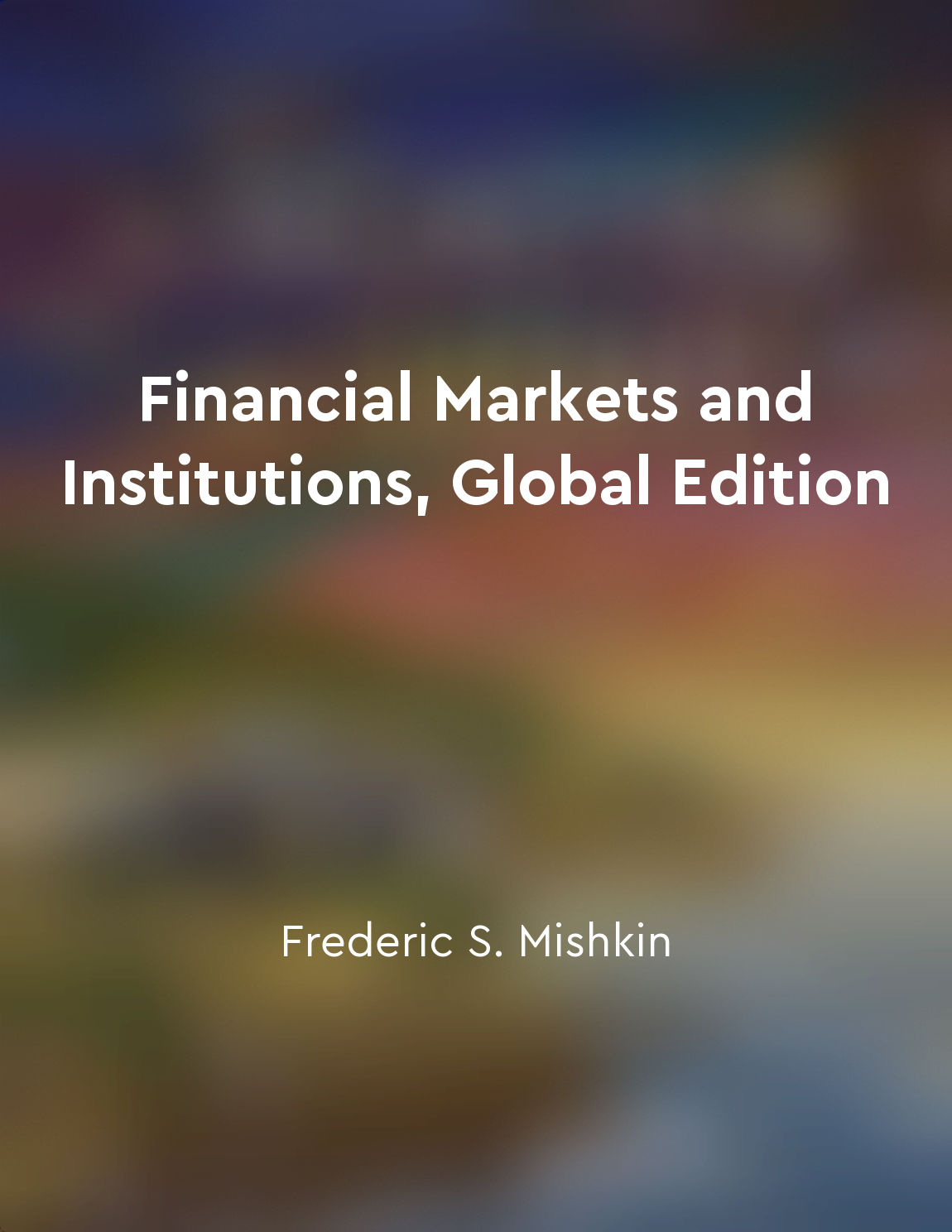Policy responses aim to mitigate the adverse effects of financial disruptions from "summary" of Financial Markets and Institutions, Global Edition by Frederic S. Mishkin,Stanley G. Eakins
When financial disruptions occur, policymakers typically respond by implementing various measures designed to lessen the negative impacts on the economy. These policy responses are aimed at stabilizing financial markets, restoring investor confidence, and promoting economic growth. In times of crisis, such as during a recession or a financial meltdown, policymakers may employ both monetary and fiscal policy tools to address the root causes of the disruption and prevent it from spiraling out of control. Monetary policy measures, such as interest rate adjustments and open market operations, are often used to influence the money supply and borrowing costs in the economy. By lowering interest rates, central banks can encourage borrowing and investment, stimulate consumer spending, and boost overall economic activity. Conversely, raising interest rates can help curb inflationary pressures and prevent asset bubbles from forming. In times of financial distress, central banks may also provide liquidity to banks and financial institutions to prevent a credit crunch and maintain the stability of the financial system. On the other hand, fiscal policy measures, such as government spending and tax cuts, can be used to stimulate demand and support economic growth during a financial crisis. By increasing public expenditure on infrastructure projects or providing tax relief to households and businesses, policymakers can inject much-needed liquidity into the economy and create jobs. These fiscal stimulus measures can help offset the negative effects of a financial disruption, such as falling asset prices, rising unemployment, and declining consumer confidence.- Policy responses to financial disruptions are crucial for restoring stability and confidence in the financial system. By taking proactive measures to address the underlying causes of the disruption and support economic recovery, policymakers can help mitigate the adverse effects on businesses, households, and the overall economy. Through a combination of monetary and fiscal policy tools, policymakers can work to prevent financial disruptions from turning into full-blown crises and ensure the long-term health and resilience of the financial system.
Similar Posts
Market participants adjust their behavior in response to economic conditions
In an economy, market participants are always adapting and responding to the prevailing economic conditions. This adjustment in...

Investors must be prepared for downturns in the market
In the world of investing, it is essential to understand that markets do not always go up. While it is tempting to focus solely...
Game theory analyzes strategic decisionmaking
Game theory is a branch of economics that studies strategic decision-making. It is based on the idea that in situations where t...
The Role of Profit in a Free Market Economy
In a free market economy, profit plays a crucial role in guiding resources to their most valued uses. Profit serves as a signal...

Market liquidity is essential for smooth trading activities
Market liquidity refers to the ease with which assets can be bought or sold in the market without causing a significant change ...
Government intervention can stimulate demand
Government intervention can stimulate demand by directly increasing the total expenditure in the economy. When private individu...
Incentives play a crucial role in decisionmaking processes
Incentives are one of the key factors that influence how individuals make decisions in their daily lives. Whether it is choosin...
Economic models simplify realworld complexities
Economic models are essential tools that economists use to analyze and understand the complexities of the real world. These mod...

Investors must be prepared for downturns in the market
In the world of investing, it is essential to understand that markets do not always go up. While it is tempting to focus solely...
Incentives play a crucial role in decisionmaking processes
Incentives are one of the key factors that influence how individuals make decisions in their daily lives. Whether it is choosin...

